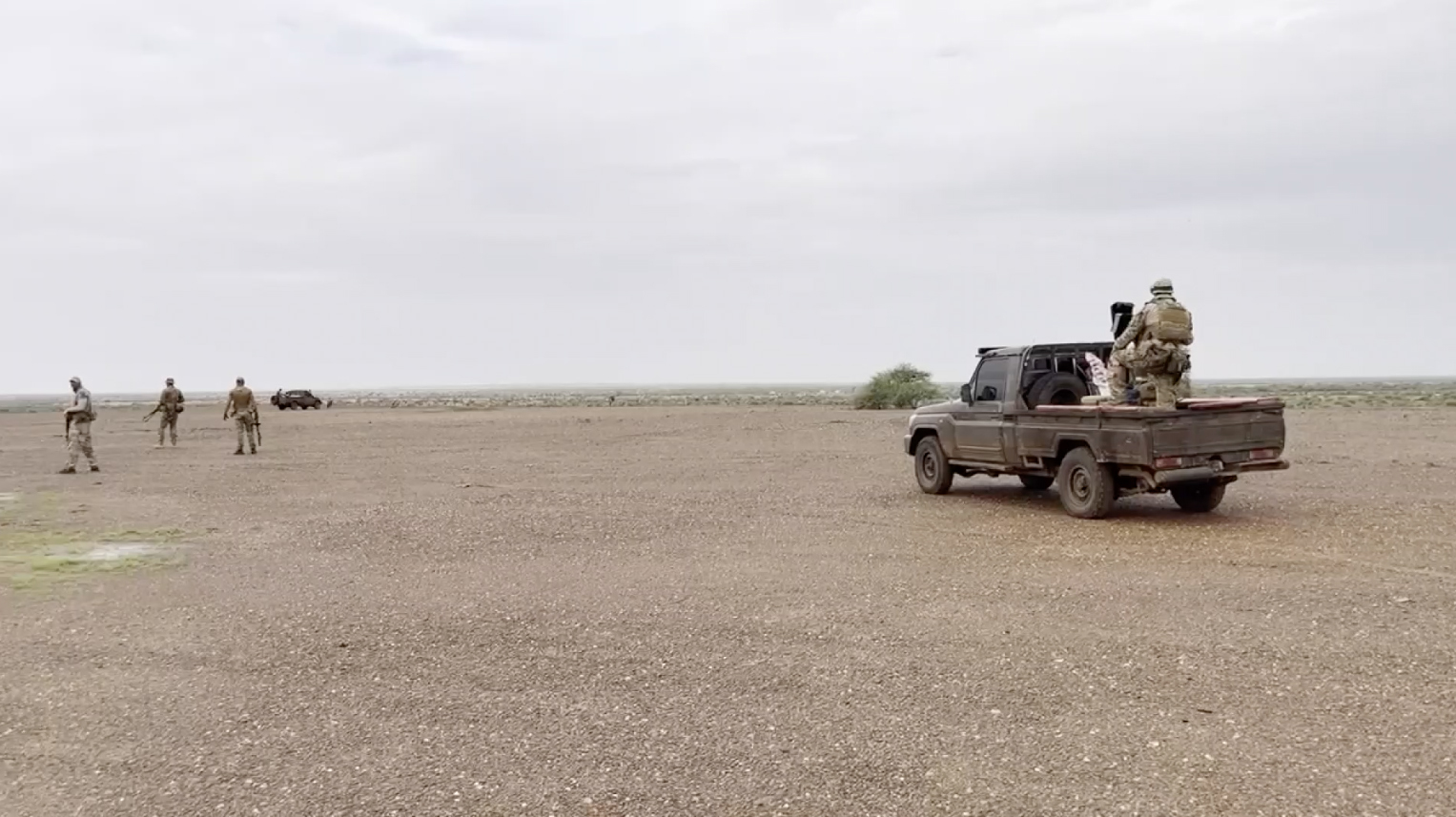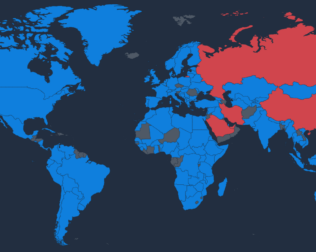by Melissa Aten and John K. Glenn
The death of Wagner Group chief Yevgeny Prigozhin, following his bizarre and short-lived mutiny earlier this year, has prompted speculation about the future of the Wagner Group’s activities, but it points to a bigger question about the future of Russia’s support for autocratic regimes around the world, especially in Africa. Regrettably, it would be wishful thinking to think Prigozhin’s death implies the end of Russian foreign influence activities. The opaque economic relationships that the Wagner Group developed in Africa, which Vladimir Putin admitted were funded by the Russian state budget, may simply be too lucrative for the Kremlin to give up.
Fiction vs. Reality in the Kremlin’s Influence in Africa
July’s 2nd Russia-Africa Summit in St. Petersburg, where Prigozhin surprisingly participated in the margins mere weeks after his mutiny, showed how important Vladimir Putin considers the continent to be for Russia’s strategic interests worldwide. Putin’s opening statement shows his continued interest in wooing African leaders who have largely remained quiet about Russia’s invasion of Ukraine. His narrative of a historical relationship between Russia and Africa that is based on economic development, sovereignty, and anti-colonialism sought to portray Russia as a less-meddlesome alternative to Western-style engagement.
Recent exposures of the Wagner Group’s network of activities in Africa suggest the reality on the ground is quite different. Rather than providing security and development on the African continent in exchange for friendly relations, Russia extracts substantial financial resources and access to natural resources from African countries that bolster Putin’s grip on power at a time when Moscow is increasingly isolated diplomatically and economically. For example, the U.S. reports that Mali’s transitional government has paid more than $200 million to Wagner since late 2021. In short, Putin reinforces and exports kleptocracy to Africa through state-affiliated and state-funded entities like the Wagner Group.
In what now sounds like foreshadowing, one adviser to Central African Republic President Touadera was quoted, “If it’s not Wagner anymore and they send Beethoven or Mozart, it doesn’t matter, we’ll take them.”
The Wagner Group’s Enabling of Kleptocracy on the Continent
The Wagner Group’s military support offered to African kleptocrats had little to do with providing security and stability for the African people. Rather, as JR Mailey argues in a July International Forum essay, the Wagner Group had become “the preferred one-stop-shop for kleptocrats in need of mercenaries, weapons, cyber capabilities, or markets for their precious minerals.” It was focused on extracting resources, advancing geopolitical goals, and serving as a key element in the authoritarian toolkit for global influence.
In the Central African Republic (CAR), three companies related to the Wagner Group were recently sanctioned by the U.S. government. According to the Guardian, these include Midas Ressources, which is linked to Prigozhin. The U.S. Treasury argues that the Wagner Group “maintains ownership of CAR-based mining concessions and licenses for prospecting and extracting minerals, precious and semi-precious metals, and gems” including those from the Ndassima mine. The financial watchdog group, the Sentry, also describes the Wagner Group’s focus on controlling Central African minerals, particularly gold and diamonds, targeting mining sites and using violent military campaigns to drive civilians away from mining areas. The Sentry argues that Wagner Group has been using its transnational networks in CAR, Sudan, Cameroon, Madagascar, and Russia to help set up industrial-scale gold production, thereby escaping national and international scrutiny.
Responding to Authoritarian-Backed Kleptocracy in Africa
Prigozhin’s death highlights that any response to this challenge will require adapting to the constantly evolving efforts by kleptocratic networks. Sanctions—an important piece of the anti-kleptocracy toolkit—must be accompanied by empowering journalists and civil society activists with the expertise and ability to identify and expose the shifting responses of kleptocratic networks that thrive by operating in the shadows.
Civil society activists and journalists, however, face enormous challenges from resource-rich regimes in countries such as Congo-Brazzaville, Sudan, and the Central African Republic that aggressively defend themselves from efforts to promote accountability and transparency. Despite these odds, we identify three critical steps to expose and combat kleptocracy in these challenging circumstances.
First, given the knowledge deficits about Russian and Chinese activities in kleptocratic networks, journalists and civil society organizations should focus on educating the public on the true nature of Russian activities in their countries, as well as on the financial, social, and ecological costs of initiatives pushed by Moscow.
Second, because leading authoritarian regimes like Russia rely on lucratively financed media enterprises to distort and manipulate information about their own activities, civil society should focus on challenging false narratives. Russian state media often uses long-standing anti-colonial rhetoric to ultimately justify corrupt activities and support for kleptocratic networks.
Third, the fundamentally transnational nature of the challenge of kleptocracy requires a transnational response. Countering corrosive kleptocratic networks necessitates concerted efforts to bring often-isolated civil society activists and journalists across regions to encourage collaboration and cross-border learning.
If democracies are to prevent another “Beethoven” or “Mozart” from stepping into Prigozhin’s shoes, they must take a comprehensive approach to this challenge. New security groups like the Wagner Group are already emerging as an alternative, and autocrats are adapting, pursuing new and often less-democratic settings to hide and launder their illicit resources extracted from Africa. Otherwise, the battle will remain one of “whack a mole.” Authoritarian mutual support networks will simply continue to adapt and elude the measures taken against them.
Melissa Aten is senior program officer for combating transnational kleptocracy and John K. Glenn is senior director at the National Endowment for Democracy’s International Forum for Democratic Studies.
The views expressed in this post represent the opinions and analysis of the author and do not necessarily reflect those of the National Endowment for Democracy or its staff. Image Credit: Wagner Account/Anadolu Agency via Getty Images.






